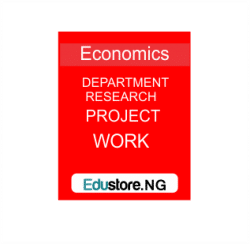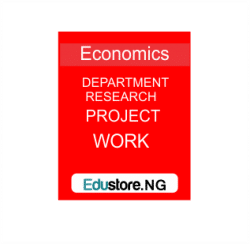Deposit Money Banks (DMBs) are the most dominant players in the Nigerian financial system holding 68 percent of the total deposits of the financial sector in the year 2012 (CBN, 2013). However, some of the perennial policy challenges facing the banking sector in Nigeria, and indeed most developing countries, are the efficiency and effectiveness with which surplus funds are intermediated between surplus units and deficit units and how to improve it. These issues have been at the heart of various financial sector reforms in Nigeria. Most of the reforms have been focused on the liberalization of the financial system to ensure that the sector is proactively positioned to perform the role of intermediation and play a catalytic role in economic development (Ogege and Shiro, 2012). These policies have not yielded the desired result as the financial subsector has been periodically punctuated by several factors which have made it vulnerable to systemic distress, macro-economic volatility and policy fine tuning (Kama 2006).Credit to the private sector (as a % of total assets) from DMBs did not show any significant improvement between 2003 and 2013. It remained at an average of around 35.82% with the maximum being 42.28% in 2010. It rose from 31.70% in 2003 to 33.89% in 2004.
DOWNLOAD COMPLETE WORK- For Reference Only: Materials are for research, citation, and idea generation purposes and not for submission as your original final year project work.
- Avoid Plagiarism: Do not copy or submit this content as your own project. Doing so may result in academic consequences.
- Use as a Framework: This complete project research material should guide the development of your own final year project work.
- Academic Access: This platform is designed to reduce the stress of visiting school libraries by providing easy access to research materials.
- Institutional Support: Tertiary institutions encourage the review of previous academic works such as journals and theses.
- Open Education: The site is maintained through paid subscriptions to continue offering open access educational resources.





